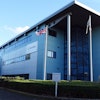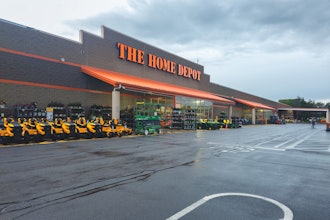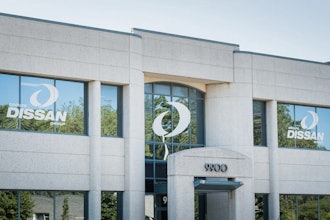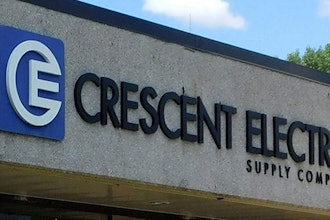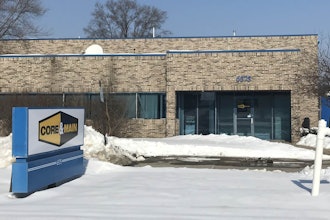MSC Industrial Supply doesn't make any snap decisions, evidenced by a multi-year executive succession plan and strategic "repeatable formula" for growth.
The word at the root of “succession”—intentionally relevant or not—is success. This abstraction is no less implied as it is a tradition for MSC Industrial Supply, as it embarks on the latest “passing of the torch” from CEO David Sandler to his board-appointed successor, Erik Gershwind.
“Each one of our transitions has always led to a higher level of success for the company,” explains Sandler. “It’s our repeatable formula.”
A “repeatable formula” for success would sound like a brazen claim, if it weren’t for MSC’s track record. When the Melville, NY-based distributor went public nearly 15 years ago, the company embarked on a period of growth that has sustained—recessions and all—to this day. The company gained market share in the past few years, and for the fiscal 2010 fourth quarter, net sales rose 30.3 percent to $461.4 million, compared with $354.1 million in the prior year period.
So just what is this repeatable formula all about—and how do we repeat it?
Wired For Growth
“The company is really wired for growth,” says Gershwind, COO and a 14 year company veteran. By “wired,” Gershwind refers to MSC’s ingrained strategy of taking a very systematic approach to its evolution. “One of our biggest challenges is to make sure we stay disciplined. It’s easy to see opportunity all over in a market that’s this big and this fragmented.”
So instead of hungrily gobbling up companies and spreading itself thin with its existing customer base, MSC has developed a consistent strategy of drilling down its core competencies. This means training and expansion of its sales force and increasing technology and service offerings through improved eCommerce and industrial vending.
Besides its core areas, MSC has made a protracted effort to expand its product lines over time. The recent recession years have been no exception, as the company notably added 43,000 new products to its 2010/2011 Big Book®. In addition, the company hopes to take its long-term success and expertise in the metal working market—where MSC’s roots lay—and repeat it systematically in other markets. It also has meant heeding the input of a team strictly tasked with assessing potential merger and acquisition opportunities.
The Break-Ups
One thing is for sure: No expansion is successful without the staff to support it, so MSC has been careful to retain its valued core of employees—folks the company refers to as “associates.” Even throughout the recession which—according to Sandler—MSC was in no way “insulated from,” the company made it through with no head count reductions.
Sandler says he owes this to the long-term strategic planning process that’s in place, along with the company’s culture and core values, all of which serve as a critical foundation built by company founder Sid Jacobson and chairman Mitchell Jacobson. The strength of this legacy, as well as an emphasis on the opportunities at hand, put MSC in a stable position coming into the recession. “When you have a long-term vision, and you have the kind of unlevered balance sheet and strong cash flow generation that we have, you look at opportunities. As we looked at the current one, we stepped on the accelerator,” says Sandler. “We had customers that were struggling to reduce or eliminate their inventories in order to generate cash; they were under tremendous pressure. Suppliers were also cutting back and reducing inventories. We know that traditional competition was also struggling, in many cases, to preserve cash by reducing inventory, closing locations, and laying off their employees. When we looked at all of that going on, we hired pretty aggressively.”
In addition, adds Sandler, “Part of it was taking advantage of all of the customer-distributor relationships that were being strained. Those relationships are very important, and with our service model, we were able to take advantage of what needed to happen from a customer perspective.” This meant retaining a consistent united front to customers and also preserving the appreciation and loyalty from company associates. In an era where gaps between company management and their associates seem to widen with alienation, MSC was able to keep a cohesive group. “As demand came back, we had a highly motivated team.”
MRO Visibility
A highly motivated team is necessary, it seems, to deal with the changing shape of customer relationships coming out of the recession. Even as cash pressures slowly ease for manufacturers, it’s unlikely that their reliance on value-added services will wane. If there’s one thing end-users learned from the circumstance, it’s that cash is hidden everywhere.
With this understanding has come an increase in customer savvy—a better idea of what they want and how to get it. It also has manifested itself in a shift from simply cost-based formulas to a more comprehensive approach to purchasing. Part of this has shown itself in inventory as a cost center, with end users trying to find ways to mitigate the carrying costs.
“MRO is very tricky because most of the spend—unlike in other areas—can’t be planned. The majority of what a customer is going to buy, they might not use again for a long period of time. They’re dealing with lots of suppliers and a ton of SKUs. If you don’t have a lot of repeat items and you don’t know when you’re going to need it, it’s tough to get clear data and good visibility,” says Gershwind.
“One of the trends in our business has been a heavier focus on solutions, not just having the product. These are solutions aimed at giving customers more visibility into where their spend is going, helping them plan better, and helping them streamline the procurement process.”
Tech Savvy
Another evolution MSC has worked tirelessly to promote is its technical capabilities. Over time, the company has morphed from an old-fashioned “catalogue house” to what it is today: a “supermarket,” armed with a knowledgeable team of experts. According to Gershwind, “If you look at the MSC value proposition, we play the role of supermarket to the industrial world. We give customers one-stop shopping.”
So what if market perception assumes that a supermarket lacks in comprehensive technical know-how? It’s been a work in progress, but the evolution of MSC has been apparent: “Earlier on, we had a lot of great products, but we didn’t have the expanded value-added services that we now have,” says Sandler. “We will invest over time in more types of these capabilities—to build out the knowledge, training, and services that will lend themselves to that level of proficiency, product line by product line.”
Some of MSC’s current programs offer value-add beyond product category maintenance, and into purchasing analysis and inventory management. MSC’s Competitive Advantage™ program offers benefits like automated replenishment, comprehensive data collection, application optimization, and tooling management in the form of tool-usage reporting for instant accountability. It’s this attention to detail and knowledge improvement that has allowed MSC to evolve from its former reputation.
“MSC used to be a national catalog house,” says Gershwind. “Now, if you went and visited one of our branches and spent a day with one of our salespeople, it looks and feels very much like a local, technical distributor.” This, says Gershwind, is because of the type of people the company has hired, and the training programs it’s put into place. “It’s the national backing with, very much, a local feel.”
Looking Forward
The succession plan is an indicator of MSC’s systematic structure—this process can take up to three years to execute, highlighting the company’s methodical and thorough approach to long-term viability. In a market like this one, you can’t afford to see management gaps that could effect the customer. “You can’t miss even once, any day,” says Sandler.
So the vision? Growth, which could include acquisitions in some core areas for MSC. “While we’re selective, we certainly look forward to partnering with other distributors who look out long term, and believe their goals for the future are best achieved by becoming part of our dynamic culture,” says Sandler. But besides these additions, the company’s real growth area will be in new customers and increasing spend from its current base. MSC plans to do this by keeping the customer—“our boss,” says Gershwind—at the forefront of every decision.
“We’re thinking about what’s going to be important to the customer long-term, and what we need to be focused on developing today and investing in, in order to meet their needs four or five years down the road,” adds Sandler. “Ultimately, it’s about what you think you can do best for your customers because, at the end of the day, that’s where the rubber meets the road.”


